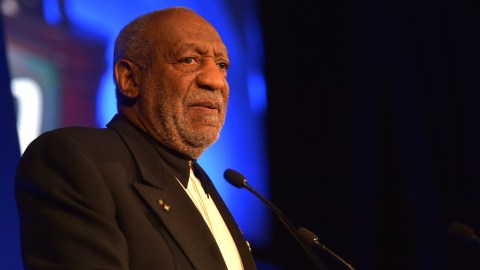Everyday Respectability Politics

There are rules, spoken and unspoken, meant to govern the behavior and presentation of people. They are not relative or flexible, but wide-sweeping and stem from colonialism, privilege and whiteness. It forces conformity, erases culture, and alters the path of a people. Many of us like to think of ourselves as progressive and liberal, but frequently exercise respectability politics for reasons we may not understand which are rooted in racism, sexism, homophobia, etc.
Respectability politics makes us comfortable. It hoists us up on our high horses, and takes away our responsibility for the way we treat other people. It puts the burden on the marginalized person to adjust their appearance or behavior to earn respect from the majority. Respectability politics permeates the fabric of our lives, and there are several clear examples to which we can refer.
Clothing and Grooming
One of the most well-known examples of respectability politics is Bill Cosby’s “pull your pants up” advice for black men (which recently backfired). This has snowballed into rules a regulations about hair texture and style, head covering, and skirt lengths. These arbitrary guidelines are used to push people out of institutions – school and work – based on their race, religion, gender, and sexuality. They are sometimes presented as commandments, and sometimes offered as if it is friendly advice. This form of respectability politics comes from the idea that people need only present themselves in a different way to curtail discrimination. It suggests that the challenges faced by the a community – the black community in many cases – stem from an issue within the community itself rather than white supremacy.
Police violence
Black people, as a matter of course, teach their children how to behave in the presence of police. The fear for their children’s lives leads them to instruct them to immediately put their hands up if they are approached by a police officer. They are told to be polite, use titles to show respect, follow instructions, and refrain from asking questions. They are – whether intentionally or not – taught to fear the police in an attempt to save their lives. The docility encouraged is not unlike that which was required of slaves to prolong their lives. Unfortunately, even following these instructions does not save everyone. Respectability politics did not save the life of Michael Brown, or any of the other people whose names we learned because of their deaths. Still, it is taught after the alphabet, but before parallel parking as a life saving tactic because we do what we must for a mere chance at survival.
Sexual assault
Women and girls are taught to cover their bodies to avoid unwanted attention. This is coupled with rules for accessing public space Reported sexual assault is met with questions like “What were you wearing?”, “Where were you?”, and “Why were you out alone?” Respectability politics makes it easy to judge and blame victims. It shifts the focus from the systemic issues we face to the individual’s behavior which is irrelevant to the injustices suffered.
Respectability politics in the African-American context began as a means of self-preservation and negotiation. Dr. Martin Luther King Jr. wore suits, was well-spoken, and led a peaceful movement. Unfortunately, it did not protect him from assassination much like putting his hands up didn’t save Michael Brown. Respectability politics was a tactic used to get a seat at the table to work with people in positions of power and negotiate for incremental change. Given the tremendous loss of life and lack of justice, we are beyond that point.
Dr. Brittney Cooper and Mychal Denzel Smith debated Dr. Randall Kennedy and Khalil Gibran Muhammed on Respectability and Activism, making solid points about the difference between the politics of respectability in black history and present day. Smith succinctly explained how respectability politics will not help to end racism or any other form of social injustice because the bar will constantly be moved.
“…In the context of a white supremacist heteropatriarchal society, respect is earned by comporting oneself according to the cultural definition of respectable that has been defined by a white supremacist heteropatriarchy which will constantly define us out of it.”
-Mychal Denzel Smith





